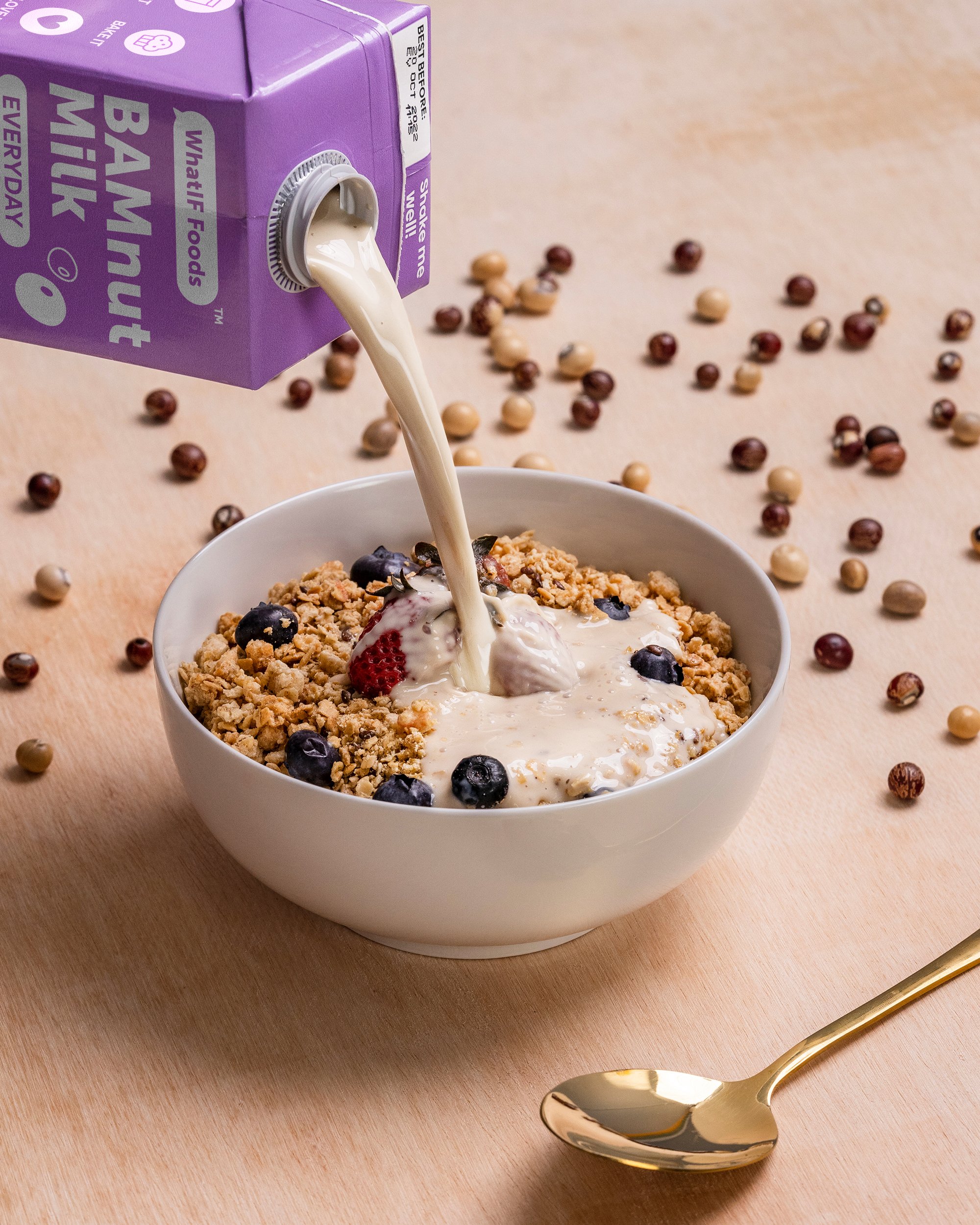Navigating the world of plant-based milk is a journey filled with choices, from almond and soy to oat and BAMnut. But beyond the variety of flavors and textures lies a deeper conversation about the specific ingredients and nutritional profile of these dairy alternatives. To ensure that plant-based milks contain optimal nutrition and have an appealing taste, texture, and flavor, processes such as fortification, enrichment and the use of additives have become common production practices.
Improved Nutritional Value in Food Additives
Fortification and enrichment generally refer to the methods used to add nutrients to foods in order to improve their nutritional value.
Fortification
Fortification specifically focuses on adding vitamins & minerals to foods that are not naturally present in the food or are present in low amounts. Common nutrients for fortification include iron, calcium, iodine, folic acid, vitamin A, vitamin B12, and vitamin D2.
Enrichment
Enrichment focuses on adding back nutrients that were lost during processing. Common nutrients for enrichment include thiamin, riboflavin, niacin, and iron.
Generally, fortification and enrichment have been shown to be effective in preventing and treating nutrient deficiencies, improving overall public health, and following legal requirements.
Food Additives
Additives refer to substances added to food during manufacturing, storage, or packaging to maintain or improve its safety, freshness, taste, texture, and appearance.
Additives include flavoring agents, enzymes, preservatives, colorings, stabilizers, emulsifiers and sweeteners. These substances can come from a variety of sources, including natural sources like plants, animals, or minerals, or synthetic sources.
While some food additives are harmless, specific types of food additives (e.g. preservatives, sweeteners, stabilizers, refined oils) can bear considerable risks to health, through gut health issues, skin problems, hormonal issues, and more.
Fortification of Food and Plant-Based Milk
So, why does this matter for plant-based milk?

We all crave milk that is nutritious and contains natural ingredients (no nasties at all). BAMnut milk is a superior option when it comes to meeting these conditions:
BAMnut milk is made from Bambara groundnuts, a regenerative legume that is naturally protein-rich, high in iron, and high in prebiotic fiber. In addition, we fortify our BAMnut milk with Calcium, Vitamin D2, and Vitamin B12 to make sure you’re not missing out on getting these essential nutrients in your diet.
Made from just 3 natural ingredients (Bambara groundnuts + Water + Coconut Oil), our BAMnut milk is a fully clean source of nutrition that does not contain additives.
Criminally creamy and notoriously nutty, the flavors of BAMnut milk also complement just about anything that you would use milk in. Plus, it froths absolutely perfectly in coffees!
In a nutshell :-)
If you're looking for a clean label plant-based milk that is natural, nutritious, and delicious, get your hands on a pack of BAMnut milk today!
What's next?
Read all about the mighty BAMnut and its journey to your kitchen here.
Learn more about the show-stopping nutritional profile of BAMnut here.
Discover how biochar plays an important role in reducing our carbon footprint here.
Find out how we create a Better Better with our partner farming communities here.

.png?v=1702543171342&options=)


